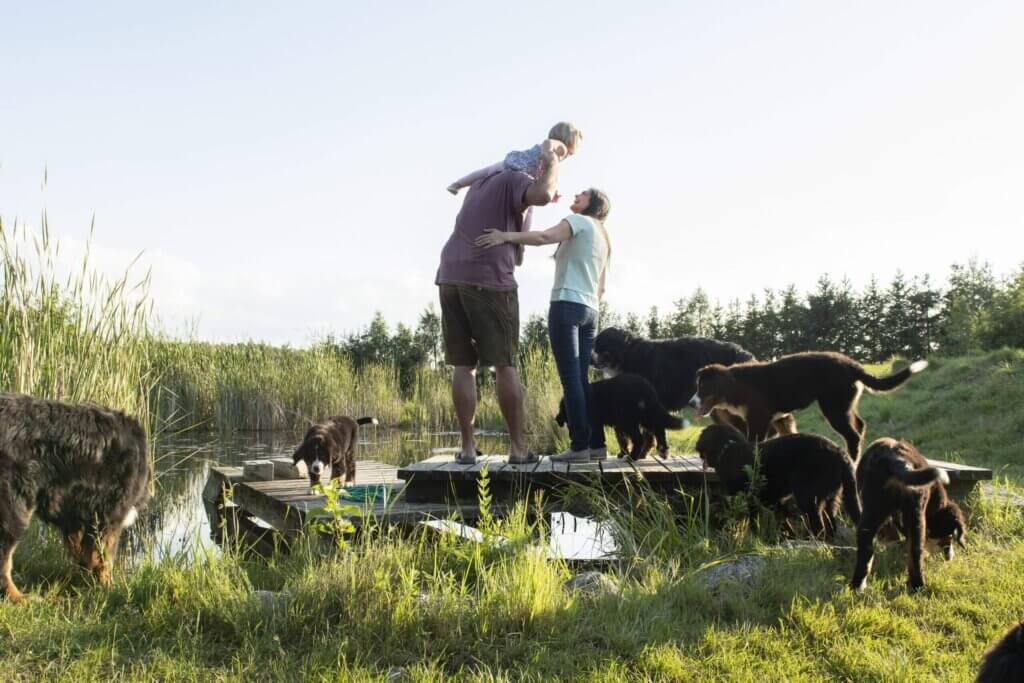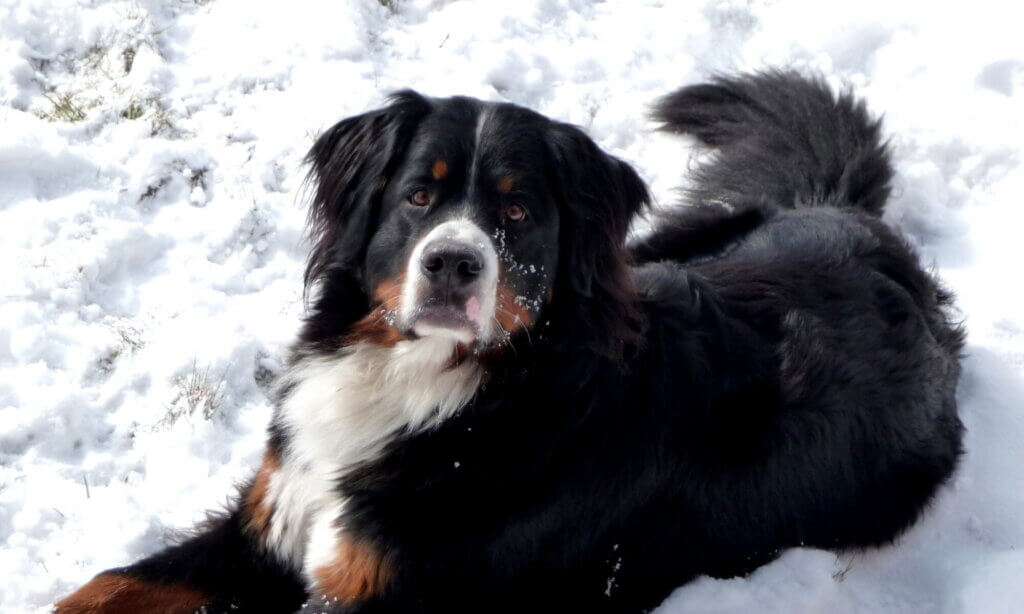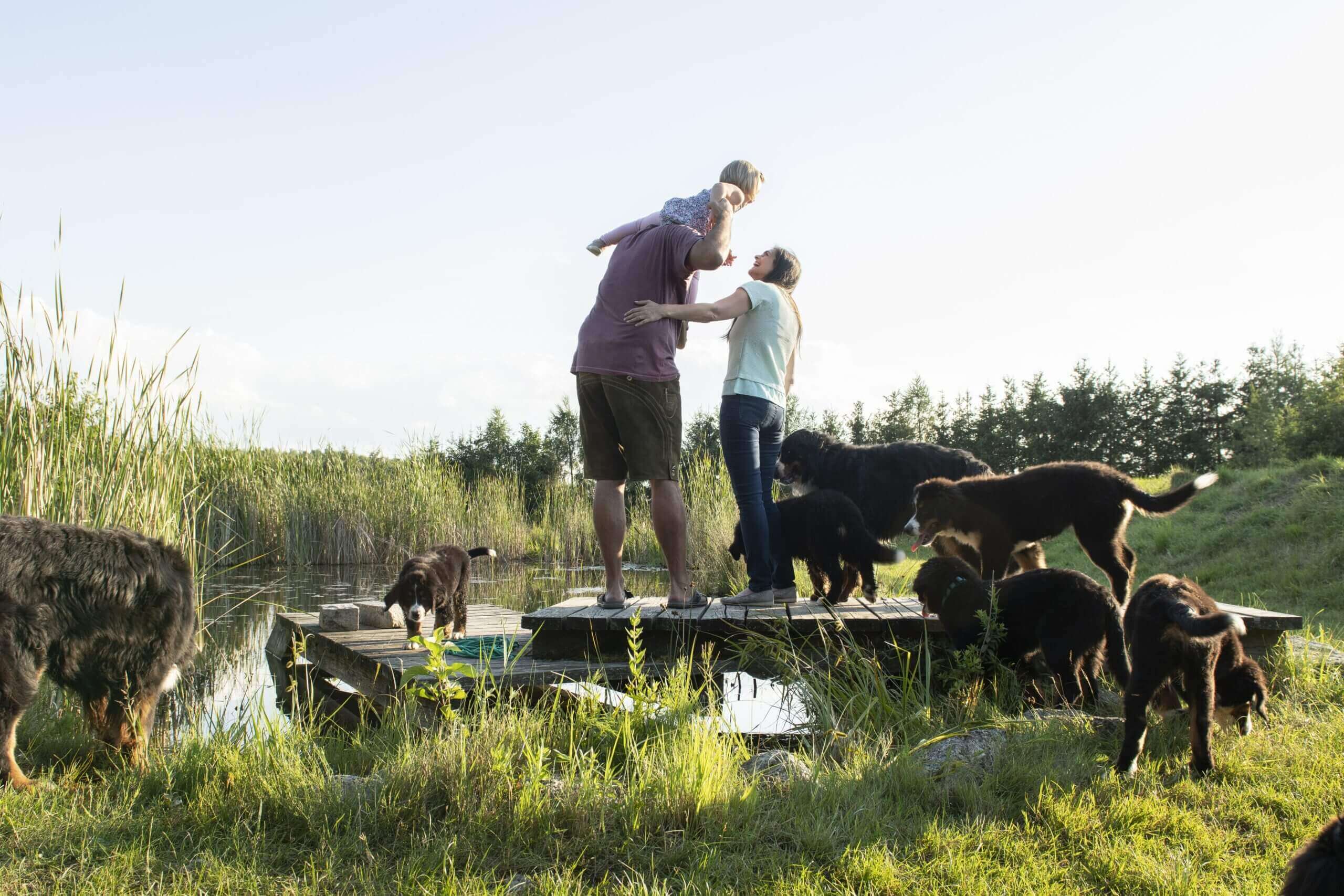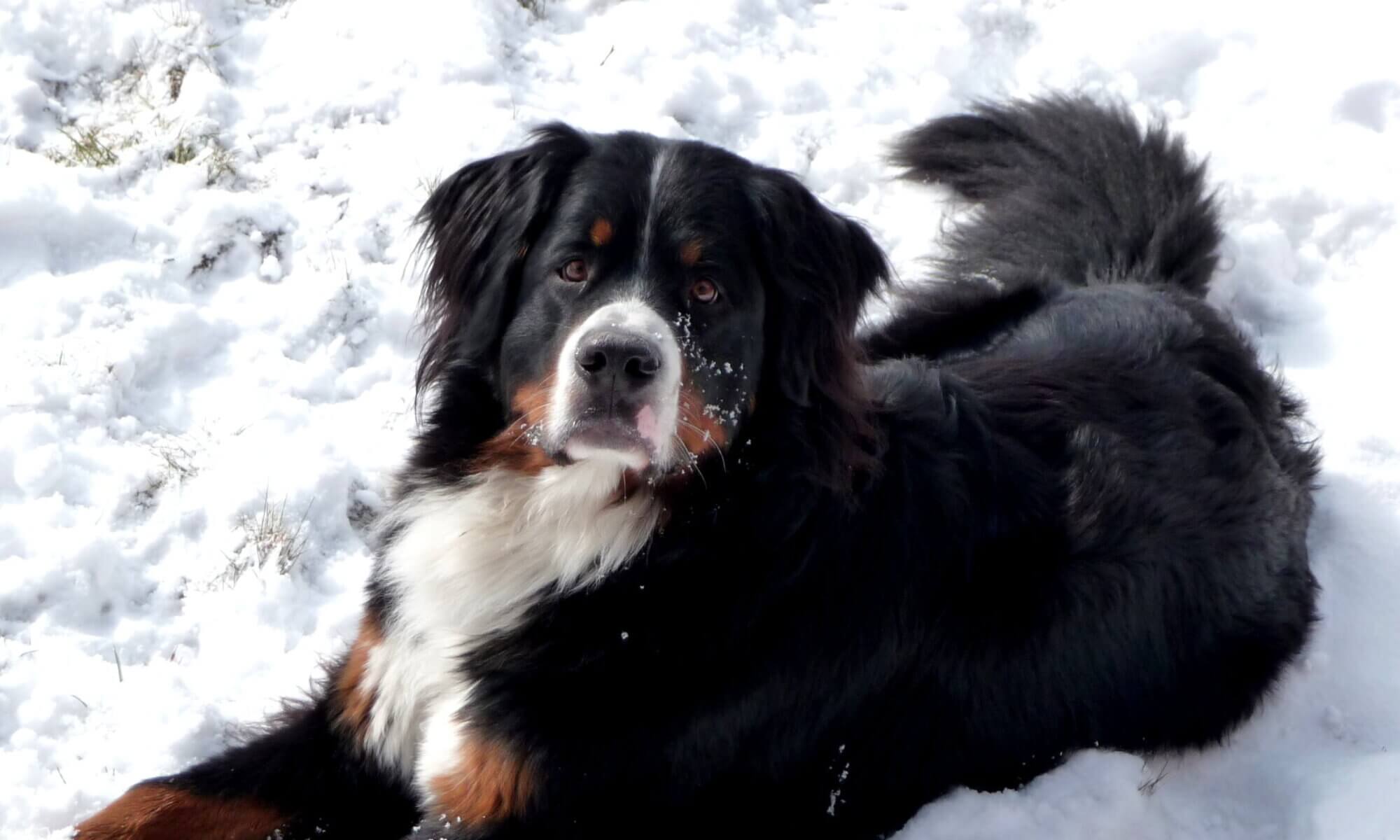General preliminary information
Do the dogs have a health certificate?
Yes, all our dogs are under veterinary care and receive a health certificate and an EU pet passport.
Are the puppies chipped before handover?
Of course our puppies are chipped before they go to their new families.
Do the dogs have a pedigree?
We are a member of the VRZ-DHS e.V. breeding association and each of our puppies receives a pedigree.
Are the puppies registered before they are handed over?
We register every puppy with Tasso e. V. and ANIMALDATA.COM before handing it over. We ask the new owners to re-register the puppy in their name, and we are of course happy to help with this.
From what age may the puppies be visited?
You are welcome to visit the puppies from the 4th week of life onwards at any time by appointment.


Information about the breed
Where does the Bernese Mountain Dog come from?
The Bernese Mountain Dog originates from Switzerland and is one of the traditional Swiss Mountain Dogs that were originally used as working dogs in the Alps.
What does a typical Bernese Mountain Dog look like?
The Bernese Mountain Dog has a three-coloured coat (black, white and brown), is strongly built and has a long, dense coat.
How big does a Bernese Mountain Dog grow?
Males reach a shoulder height of 64-70 cm and weigh around 38-50 kg, while females are 58-66 cm tall and weigh around 36-48 kg. These figures are average values.
How old can a Bernese Mountain Dog grow?
The average life expectancy of a Bernese Mountain Dog is between 7 and 11 years.
What is the temperament of the Bernese Mountain Dog?
Bernese Mountain Dogs are known for their friendly, even-tempered and good-natured nature. They are loyal and affectionate towards their families.
How much exercise does a Bernese Mountain Dog need?
This breed needs regular, moderate exercise. Daily walks and outdoor playtime are important to keep them healthy and happy.
How high-maintenance is the coat of a Bernese Mountain Dog?
Their long, thick coat needs to be brushed regularly to prevent matting and keep the hair healthy. Daily brushing is necessary during the shedding period.
How to feed a Bernese Mountain Dog properly?
A balanced, high-quality diet that is appropriate for the dog's age, weight and activity level is important. Overfeeding should be avoided to prevent obesity.
Are Bernese Mountain Dogs suitable for first-time dog owners?
Yes, they are generally well suited to first-time dog owners, provided they are prepared to deal with the needs of a large dog and provide regular training and care.
Do Bernese Mountain Dogs need special care in summer?
Because of their thick fur, they can overheat in hot weather conditions. It is important to provide them with sufficient shade and fresh water and to avoid intense physical activity during the hot hours of the day.

Things to know about puppies
What preparations should I make before a puppy moves in?
Make sure you have all the necessary utensils such as bowls, lead, collar and possibly a transport box ready.
How do I organise the puppy's first few days?
Keep the first few days calm and stress-free. Show the puppy its new home, let it explore in peace and give it time to get used to its new surroundings.
How can I teach my puppy to be house-trained?
Take the puppy outside regularly, especially after eating, sleeping and playing. Praise him when he gets loose outside and remain patient and consistent.
A tip from our trusted dog trainer: think of a kind of ‘trigger word’ that you say every time you release him. This should make it possible for you to send your dog to release at a later time.
How often should I feed my puppy?
Puppies should be fed three to four times a day in the first few months of their lives. Stick to a feeding schedule and use high-quality puppy food.
How often should I take my puppy for a walk?
Short, frequent walks are better than long ones. Puppies have a lot of energy, but also short attention spans. Adapt the duration to the puppy's age. However, be sure to take the current weather conditions into account.
A rule of thumb is:
For every week of your puppy's life, allow 1 minute for the walk. Example: With a 16-week-old puppy, this would result in a duration of 16 minutes for a walk.
How do I care for my puppy's coat?
Regular brushing is important to keep the coat clean and healthy. Get your puppy used to grooming at an early age to avoid problems later on.
What should I know about my puppy's dental care?
Start early with dental care by brushing your puppy's teeth regularly. Use special dog toothbrushes and toothpastes. It is also advisable to provide your puppy with chews. This is not only important for dental health, but also helps with teething and changing teeth.
ATTENTION: Please do not leave the puppy alone with the chews!
How much rest and sleep does a puppy need every day?
Puppies need plenty of rest and sleep to grow healthily. On average, they sleep around 20 hours a day. Make sure that your puppy has enough rest periods and is not overtaxed.
How important is routine for a puppy?
A fixed routine and a consistent line in training and behaviour gives the puppy security and helps him to get used to his new home and his new family.


